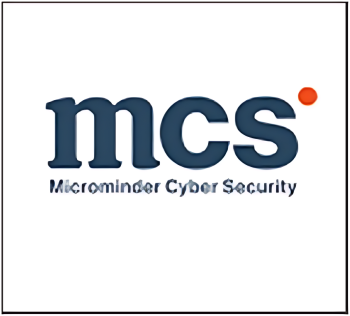Why Corporates in the GCC Need Regular IT Security Audits – Audits Explained
4 months agoGibraltar: Thursday, 21 August 2025 – 07:00 CEST
GEÓ CYBERSECURITY: Why Corporates in the GCC Need Regular IT Security Audits – Audits Explained
By: Iain Fraser – Cybersecurity Journalist
Published in Collaboration with: MicrominderCS.com
Google Indexed (AIO+0+1) on Thursday, 21 August 2025 at 07:26
GEÓPoliticalMatters.com | First for Geopolitical Intel

Why Corporates in the GCC Need Regular IT Security Audits – Audits explained, why they matter, and how Middle Eastern businesses benefit from them.
Organisations in the GCC face unprecedented Cyber risk. Regional economies are embracing digital transformation at scale, but this progress has expanded attack surfaces by over 200% since 2020. Financial institutions, energy companies, healthcare providers, and government-linked entities remain prime targets.
Globally, breaches now cost an average of $4.45 million per incident, with fines for non-compliance running as high as 4% of turnover. In this context, IT security audits are no longer a compliance formality. They are a strategic imperative. Microminder Cyber Security (MCS) argues that regular audits strengthen resilience, ensure regulatory alignment, and deliver measurable returns.
What an IT Security Audit Covers
An IT security audit is a structured examination of an organisation’s systems, networks, and processes to identify weaknesses and validate controls. MCS notes that leading frameworks such as NIST, ISO 27001, and COBIT underpin the process. Auditors apply automated scanning, penetration testing, and configuration reviews alongside social engineering and documentation checks.
Key focus areas include:
*Network security – firewalls, segmentation, intrusion detection.
*Application security – vulnerabilities in custom and third-party systems.
*Data protection – encryption, retention, and backup procedures.
*Access management – permissions, privileged accounts, and authentication.
*Physical security – data centre controls.
This holistic approach provides leadership teams with actionable insight into risk exposure.

Why Audits Are Essential for GCC Businesses
According to MCS, corporates across the Middle East must contend with several realities driving the need for regular security audits:
1. Expanding attack surfaces
– Widespread adoption of cloud, IoT & remote endpoints across the GCC has multiplied potential entry points.
2. Advanced threat actors
– From state-sponsored campaigns to ransomware-as-a-service, adversaries targeting the region are highly capable.
3. Compliance and regulation
– Gulf regulators are tightening requirements around data protection, critical infrastructure, and financial services. Audits help demonstrate compliance with global and regional standards.
4. Financial and reputational risk
– Breaches undermine investor confidence and customer trust. Research shows 35% of clients disengage after a major data incident.
Organisations with mature audit programmes detect breaches nearly 9x faster and report up to 78% fewer incidents each year.
Types of IT Security Audits
MCS stresses that audits vary depending on business objectives and sectoral obligations:
*Compliance audits – GDPR, PCI DSS, HIPAA & Regional frameworks.
*Vulnerability assessments – Identifying weak spots across infrastructure & apps.
*Penetration testing – Ethical hacking to test real-world exposure.
*Risk assessments – Quantifying threat likelihood and impact.
A balanced programme combines these elements to cover both regulatory & operational risk.
The Corporate Business Case
Security audits are not overheads; they are risk-mitigation investments. MCS identifies four clear returns:
*Reduced breach probability
– Early detection reduces the risk of catastrophic incidents.
*Regulatory assurance
– Demonstrates due diligence to regulators, insurers & partners.
*Operational resilience
– Strengthened incident response improves recovery speed and reduces downtime.

Challenges Facing Corporates in the Region
While essential, audits face hurdles in execution. MCS highlights:
*Resource pressures – Security talent remains scarce across the Middle East.
*Complex IT estates – Hybrid and multi-cloud adoption complicates assessments.
*Cultural resistance – Prioritising speed of delivery over security controls.
*Evolving threat landscape – Attacks are innovating faster than defences adapt.
Addressing these challenges requires executive-level commitment and a risk-based audit strategy.
Best Practices in IT Security Auditing
To maximise value, MCS recommends five best practices for corporates:
1. Establish an audit charter – Define scope, authority, and governance upfront.
2. Ensure independence – Use third-party auditors to avoid internal bias.
3. Adopt continuous auditing – Combine scheduled reviews with automation.
4. Focus on high-impact risks – Prioritise critical systems and sensitive data.
5. Document rigorously – Evidential Data for regulators, insurers & board.
These practices ensure audits translate into long-term resilience.
Case Studies
Regional corporates are already seeing benefits. MCS cites:
*Banking sector
– An audit uncovered nearly 900 high-risk vulnerabilities. Within six months of remediation, risks fell by 92% and compliance certification was achieved.
*Healthcare
– A hospital group found weak access controls and unencrypted data across endpoints. Post-audit improvements cut incidents by 78% annually and secured HIPAA alignment.
Such examples highlight how structured audits deliver measurable business impact.
Moving Forward in the GCC
For corporates in the GCC, IT security audits are no longer a question of regulatory box-ticking. They are board-level tools for protecting shareholder value, ensuring compliance, and maintaining customer confidence. Partnering with Microminder Cyber Security provides independent, framework-driven assessments and remediation guidance.
As cyber threats intensify across the region, audits should form the foundation of a proactive, risk-based security strategy.
Summary
For corporates in the GCC, IT security audits reduce breach risks, strengthen compliance, and enhance resilience. Working with Microminder Cyber Security helps ensure these audits deliver lasting protection and measurable returns.
MCS | Microminder Cybersecurity: Securing GCC Critical National Infrastructure & OT.
MCS: Your Partner for a Secure Gulf Future.
The GCC‘s trusted leader in Operational Technology (OT) and Critical National Infrastructure (CNI) Cybersecurity. We provide elite, fixed-cost security solutions for blue-chip Enterprises and Government entities across the Gulf, backed by four decades of global expertise from our parent group, Micro Minder Plc. Our integrated SOCaaS protects your entire industrial ecosystem—from IT and IIoT to ICS/SCADA systems. Learn More /…
About the GCC & Member Countries
The Gulf Cooperation Council The six GCC (Gulf Cooperation Council) countries are Bahrain, Kuwait, Oman, Qatar, Saudi Arabia, and the United Arab Emirates (UAE). These nations formed a political and economic union in 1981 to foster regional cooperation and integration among themselves.
Learn More /…











